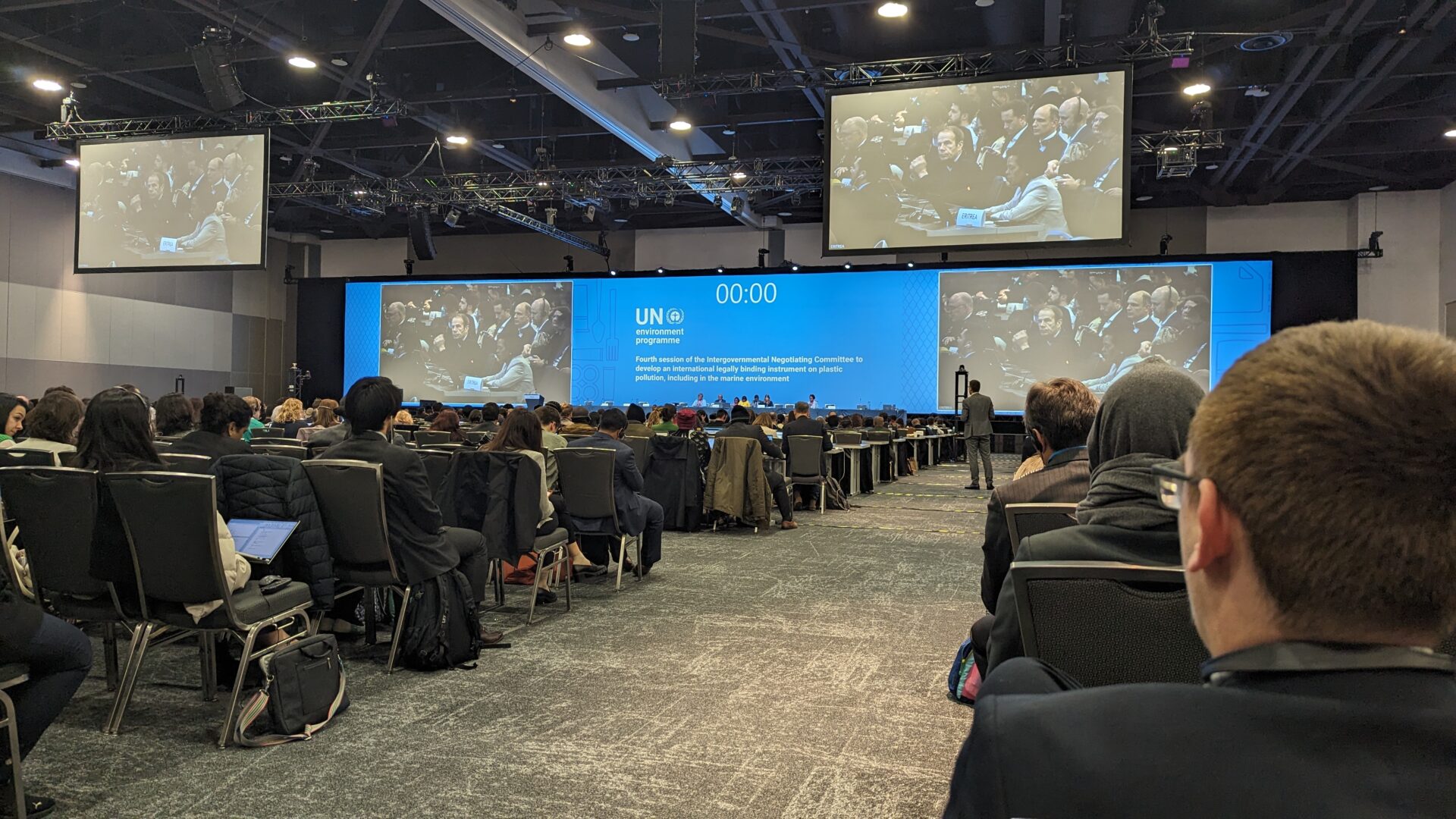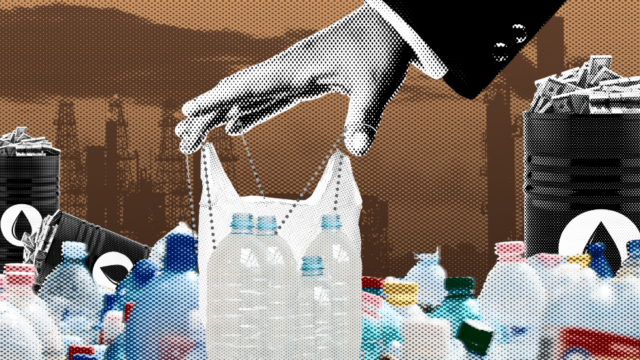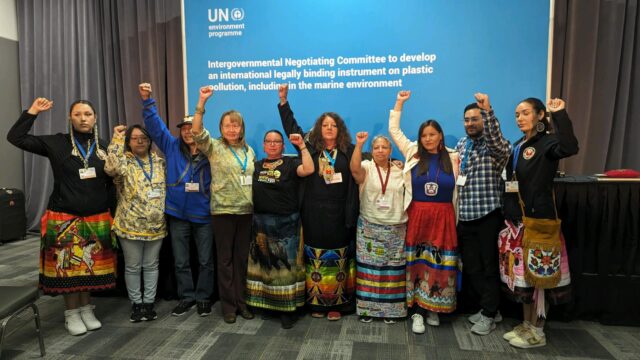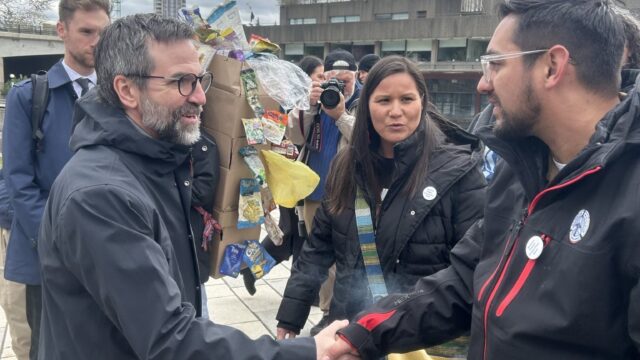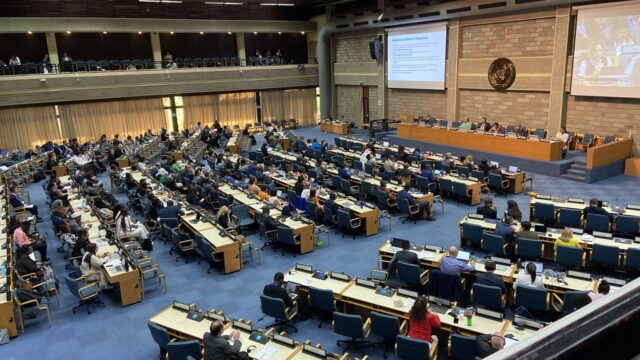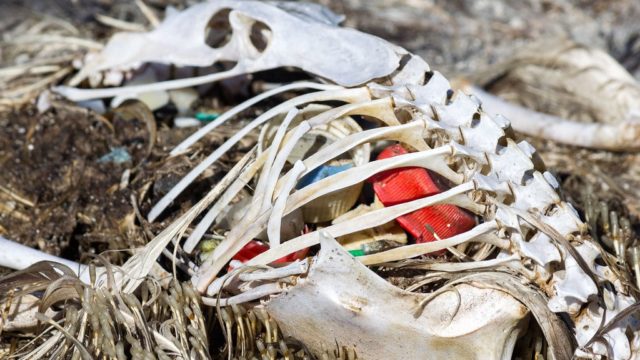OTTAWA/TRADITIONAL, UNCEDED TERRITORY OF THE ALGONQUIN ANISHNAABEG PEOPLE – The fourth round of negotiations of the United Nations global plastics treaty concluded early this morning in Ottawa, and the results do not reflect the ambition we were hoping for. Frontline communities, Indigenous Peoples, waste pickers, and environmental justice groups were united on the need for a treaty that tackles the full lifecycle of plastic, but the urgency they brought to Ottawa did not find its way into the close-door sessions.
There are still a small number of member states blocking action on rampant overproduction of plastics — the root cause of the pollution crisis. Disappointingly, plastic production was left out of the critical intersessional work set to take place in the lead up to the final round of treaty negotiations in the Republic of Korea later this year.
As the global plastics treaty negotiations unfolded in Ottawa, just a few hours away the community of Aamjiwnaang First Nations declared a State of Emergency due to dangerous levels of benzene in the air — a cancer-causing chemical used and released by the nearby INEOS Styrolution styrene plant.
Representatives from Aamjiwnaang at the treaty negotiations delivered a powerful message, alongside fellow frontline Indigenous leaders. Indigenous Peoples need to be included as equal partners at the table, and in all efforts to tackle the plastics pollution crisis.
Ecojustice and Environmental Defence released the following statements at the conclusion of this round of treaty negotiations:
Melissa Gorrie, Law Reform Manager, Ecojustice said:
“While this round of negotiations have formally concluded, Canada’s work must not stop here. There are currently strong options included in the draft treaty text that would help meaningfully address the root causes of plastic pollution. But the draft text also includes many weak options — watered down by industry and low-ambition countries — which would allow the continued spiral of plastic proliferation.
“As the host country of this round of negotiations, Canada has a continued role to play in working with other host countries to push for an ambitious, full lifecycle approach to addressing the plastics pollution crisis, including by cutting plastic production, in the leadup to the final round of treaty negotiations.
“More urgently, true leadership that upholds commitments to Indigenous rights and ending plastic pollution also means that Canada must take immediate steps to ensure that communities like Aamjiwnaang are protected from plastic production pollution.”
Karen Wirsig, Senior Program Manager, Plastics, Environmental Defence Canada said:
“The world desperately needs to take a hard look at the harms from plastic production, use and disposal. Canada can start now by committing to end subsidies to plastics and petrochemical companies that are at the root of the problem. The best thing about the Ottawa talks was the energy of the people who came to demand that the world take notice that frontline communities are being devastated by this pollution. That spirit must continue through the intersessional work and find its way into the plastics treaty itself. The plastic era must come to an end in Canada and around the world.”

